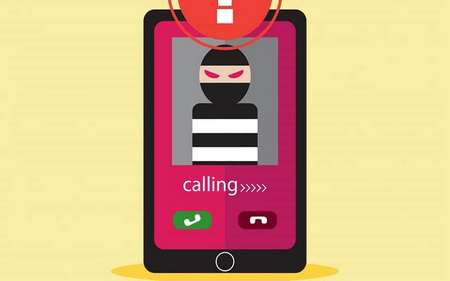What types of phone fraud exist and how to avoid it?
 Julius Conley
02 / May / 21
Visitors: 1052
Julius Conley
02 / May / 21
Visitors: 1052
Phone fraud is becoming more common every year. Its victims can be both ordinary people and well-known personalities. To date, there are a lot of schemes that are used by phone scammers. This article will help you recognize scammers and not fall for their bait.
Popular phone fraud schemes
There are several common ways that phone scammers use.
A close relative is in trouble
They call from an unknown number and introduce themselves as internal affairs officers. They report that a close person has been detained. Various reasons can be given (an accident, illegal possession of weapons, murder, drug discovery, bodily harm to another person, etc.). Then the phone is passed to a supposedly close person who says in an agitated, indistinct voice or in a whisper that he is in trouble. The phone is allegedly handed over to a law enforcement officer who offers to help in this situation.
The money for the services is asked to bring not to the department, but to a certain place, explaining this by the fear of being caught giving a bribe. If the victim agrees to transfer a certain amount of money, then the callers inform the place where they need to be brought and handed over to the specified person. Often, the amount is collected by a courier who is either in collusion or does not know anything.
Source: https://zakonved.ru/ugolovnoe-pravo/prestupleniya-v-sfere-ekonomiki/telefonnye-moshenniki.htmlПосле the transfer of money to the victim can tell you where you can "find" a relative who was actually initially safe. They may not report anything, but simply disappear. This is often done by prisoners directly from places of detention. The option of transferring funds to a card account is rarely used, since the card account is calculated. It also happens that money is asked to be transferred to a phone number.
If the caller does not agree to such actions, pressure is exerted on them and attempts are made to intimidate them. Scammers try to conduct a continuous conversation, so as not to give a person any chance to comprehend what they have heard.When committing such fraudulent actions, as a rule, several persons act at once. The main character is engaged in calls, dialing numbers on the mobile phone in ascending or descending order of the last digit, uttering pre-prepared phrases and trying to intimidate and disorient the victim.
You won, but you need money to register and receive the prize
Due to the frequent holding of promotions and lotteries on radio and television, scammers decided to use this method to deceive honest citizens, hiding behind the face of solid companies or simply inventing new ones. As a rule, fans of fast money and easy money fall for this bait.
The victim's phone number receives a call or TEXT message saying that you have won a car or something very large and expensive. To clarify the details, you are invited to make a call to the specified number. The caller introduces himself as the host of a radio show or TV show and reports a big win. Usually called such prizes:
a large amount of money;
car;
laptop;
smartphone.
To get the prize ,the "lucky one" needs to call back to the radio station and provide some information. The incoming call is answered by the "head of the prize fund" and reports a number of requirements that are needed to receive a gift. The fraudster asks the person to introduce himself and name the date and year of his birth, very convincingly tells about the action and assures of its honesty.
Then there is the intimidation that if this is not done, then the prize will not be possible to get, it will be played again among the remaining participants. Fearing to lose their chance, the victim urgently performs the required actions. As soon as the victim does this, their money will be transferred to the scammers.
Error with the transfer of funds to the mobile phone
An SMS message is sent to the phone, which says that a certain amount of funds has been deposited to the mobile account using the mobile transfer function or through a payment terminal (in fact, no deposit is made). Just a minute later, scammers write or call and report that the transfer was made by mistake, so they ask you to transfer this amount back via mobile transfer.
Often, in their quest to restore justice, the victim does not even think to check their account and "returns" the funds back, in fact transferring their own money to the scammers. Only an insufficient amount of funds in the account can prevent this from happening, and the notification of which will finally make the victim suspect something is wrong.
Theft of funds by phone call
The number receives an SMS with a request to call back and a detailed explanation of the reason for the call. Naturally, all these circumstances are made up. After the callback is completed, you are kept in touch for a very long time. As soon as you disconnect, you will find that money has been debited from your mobile account. In this case, you are calling a paid phone number that was registered to the scammers.
Request for help
The phone receives a message from an unfamiliar number with a request to transfer money not to a regular number, but to the one from which the SMS came, or to the account or card specified in the same message. In this case, standard addresses are used (father, mother, son, daughter, friend, etc.).
Usually the message does not contain anything frightening (got into trouble, trouble happened) since a person can get alarmed and call a relative, a friend, from whom a text message allegedly came. The text of messages usually like need to top up your balance urgently, can't call, etc.
Phone fraud related to bank cards
The prevalence of plastic cards has greatly simplified the life of scammers and increased the number of their victims. Thanks to a simple phone call, fraudsters can get hold of the card account information in a few minutes and deprive the victim of a decent amount of funds on it. Consider the most common schemes of fraud with bank cards.
Verification by the bank security service
The phone number receives a call allegedly from the bank's security department. In the conversation, they are asked to provide information about the card for verification and at the same time threaten to block the card in case of refusal to give information. Having taken possession of the cardholder's secret data, the fraudsters make purchases or transfer funds to their account.
Financial rescue
Fraudsters call, introduce themselves as bank employees and report that your card number is currently being illegally debited and that you urgently need to check your personal data. At the same time, scammers are asked to name all the information on the card.
False buyer
Many people use the services of trading platforms to sell something, and indicate their phone number on them. He receives a call from a fraudster-a "buyer", who asks to dictate the card number, its expiration date and the three digits on its back, allegedly to transfer money for the purchase.
How this scheme works, tells the potential victim, who did not succumb to the tricks of the swindler and recognized the deception. Message with the number 900
The victim receives a text message from an unknown number about blocking the card, debiting funds and a phone number for communication, but at the beginning of the message is indicated 900-the number of Sberbank. An inattentive victim calls back, and the scammers dictate false instructions to her, hiding behind the goal of unlocking the card or returning the debited money. In fact, the information on the card is extracted, an alleged trial transfer is made to the account or number specified by the fraudster, which is stolen.
How to recognize a phone fraudster?
To understand that you are being called by an ordinary scammer, pay attention to the following points:
during the conversation, the cheaters take advantage of the victim's stressful state and try to tell her as much information as possible so that she does not have time to think about everything said;
there is often an element of intimidation in the methods of telephone scammers;
cheaters take advantage of people's sense of greed and their desire to get benefits (for example, a big win) without making an effort;
the low price for any product or service should alert you: if the cost of the product is lower than its usual price, then surely this ad was placed by scammers.
Safety rules
To avoid becoming victims of phone fraud, you need to remember:
No need to panic when you are told any information, even if it is shocking. It is necessary to interrupt the phone call and think carefully about what you have been told.
If the scammers claim that one of the relatives is in trouble, immediately disconnect and call him back. If you can't get through to him, then call someone who may be near him at this moment.
If the conversation is conducted with an alleged law enforcement officer, then you need to find out his position and full name, in which department he works.
In any case, do not give the full name (of your own or your relatives) and do not pass the card data. Even bank employees are not allowed to demand the PIN code of the card. Mobile operators are never asked to provide a phone account top-up code.
Don't be fooled by the fact that you won an expensive prize, especially if you have never participated in any lottery yourself.
When making purchases on the Internet, you need to use only verified sites, if possible, do not make an advance payment.
You should enter the number of the bank's hotline in the address book.
It is recommended to have a separate card for making virtual purchases.
It will be useful to have a phone number for emergency situations, which only relatives will know.
We have compiled a list of brokers, that we recommend avoiding.







